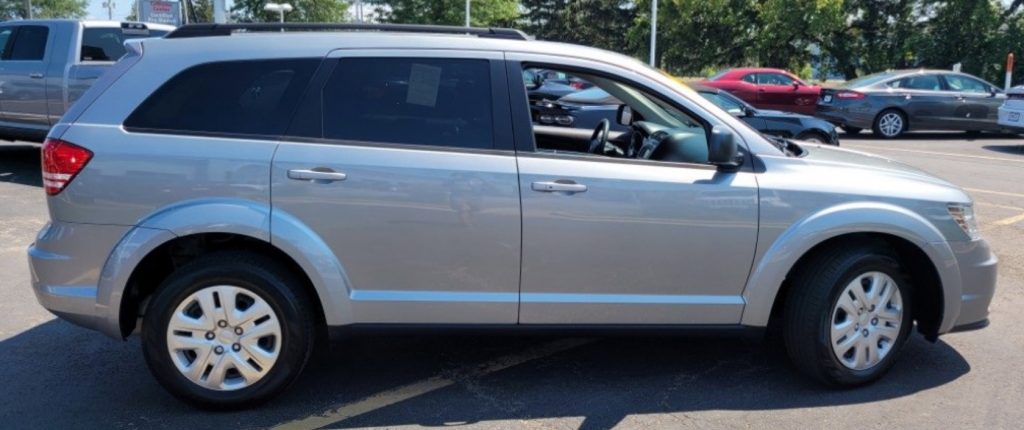
If your Dodge Journey is jerking when you press the accelerator, a few common issues can cause this. This guide is built to help you get a better idea as to why your vehicle is jerking.
The most common reason a vehicle jerks when accelerating is a misfire. Checking for trouble codes can make the diagnosis a lot easier.
Table of Contents
- Quick diagnostic table– A quick explanation of the potential causes of why your vehicle jerks when accelerating, along with the possible trouble codes that can appear with them.
- Causes– A detailed look at each potential cause of jerking when driving the Dodge Journey and what you can do about it.
Jerking While Accelerating Quick Diagnostic Table
| Cause | Trouble Code? | Notes |
|---|---|---|
| Spark Plugs | P0300 (random misfire) P030X(Where X = the misfiring cylinder ) | You should hear the misfire when revving the engine when your Journey is parked. |
| Coil Packs | P0300 (random misfire) P030X(Where X = the misfiring cylinder) | You should hear the misfire when revving the engine when the vehicle is parked. |
| Plug Wires | P0300 (random misfire) P030X(Where X = the misfiring cylinder) | You may see the spark “jump” on the wires when it’s dark. |
| Catalytic Converter | P0420 | Check engine light may flash. |
| Causes | P0150 (O2 sensor malfunction), P0151 or P0152 (voltage codes) | Replacing the O2 sensor in question is the most common fix. |
| Air/Fuel Mixture | P0171 or P0172 (too rich or too lean). There are a ton of 02 sensor codes | A lean or rich air-fuel mixture is usually caused by a bad O2 sensor or MAP/MAF sensor. |
| Engine Timing | P0340 (camshaft timing) | The timing chain may have “jumped,” or the cam or crank sensors are bad. |
| Motor or Transmission Mount | No code | A visual inspection can usually determine if a mount is bad. |
| Clogged Air Filter | No Code | Quick and easy to check. |
| Lack of Fuel | Maybe a fuel pressure-related code | Typically a clogged fuel filter or bad fuel pump causes this. |
| Fuel Injector Issue | P0171 or P0174 | You may hear the injector ticking when backing off the gas. |
Dodge Journey: Jerks When Accelerating Causes

Your Journey’s engine is a pump. It mixes air and fuel and needs a strong ignition of the two to run correctly. If any of these three variables are off, you will not have optimal combustion, and it can jerk while accelerating.
Start with the check engine light.

If your check engine light is on, the first thing that you should do is scan the computer system and see if there are any OBDII diagnostic trouble codes. You can pick up a scanner pretty cheap. Or, most major parts stores will provide this service to you free of charge.
Here are the most common issues that cause your Journey to jerk when accelerating:
1. Misfiring Engine
A few things can cause an engine to misfire. More often than not, it’s going to be the spark plugs or coil packs that are the culprit. A misfire is the most common reason your Dodge Journey jerks while accelerating.
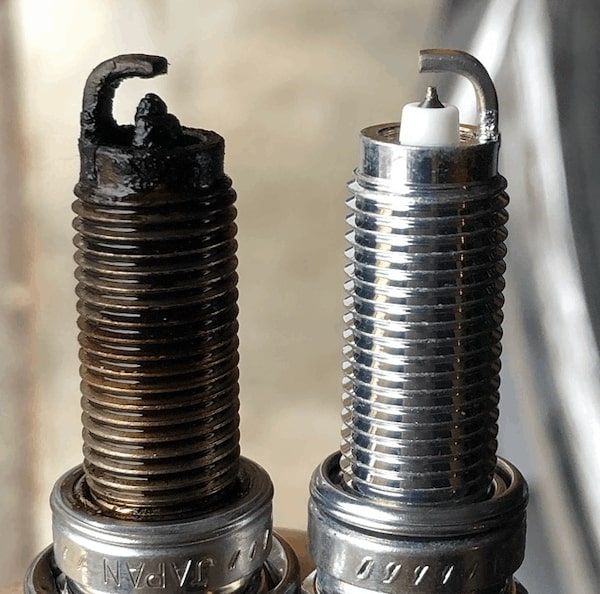
Here are some common misfire causes.
- Spark Plugs– Even under the best conditions, spark plugs will eventually need to be replaced. Oil on the plugs, the wrong plug, or bad spark plugs can cause a misfire.
- Coil Packs– Your ignition coil, or coil packs, create the spark and send it to the spark plug at just the right time for optimal power and efficiency. When one has gone bad, they’ll usually cause your Journey to jerk when accelerating, idle rough, and hurt fuel mileage. Here’s more on diagnosing bad coil packs.
- Plug Wires– Spark plug wires are not as common as they used to be, but your particular model of Journey may have them, so they are on the list. A spark plug wire goes bad when it can no longer transfer the spark from the coil pack or distributor properly.
While the ignition system is the most likely reason a vehicle will jerk when accelerating, it is not the only one.
2. Exhaust Issues
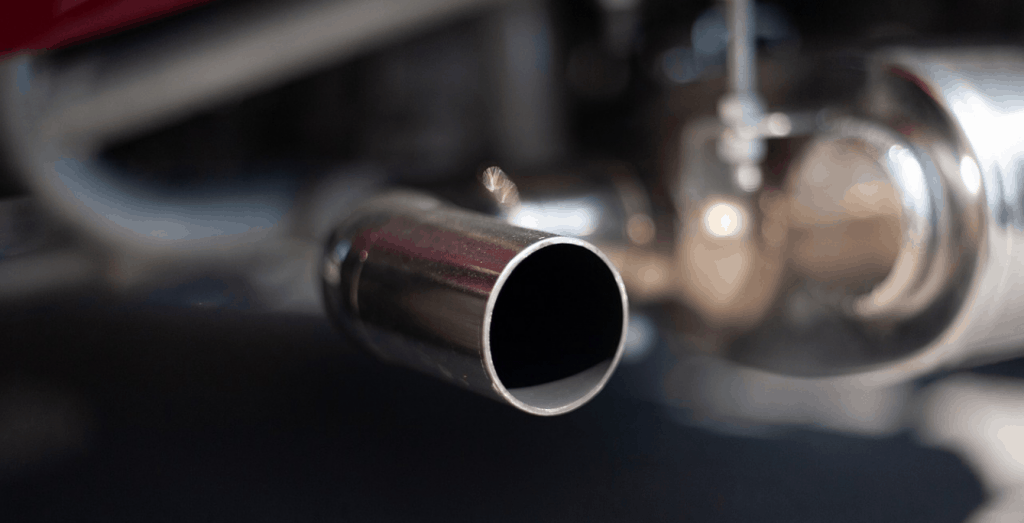
Your Dodge Journey’s exhaust system has three functions. It releases exhaust gasses behind the vehicle, scrubs pollutants via the catalytic converter, and helps the engine adjust the air/fuel mixture via O2 sensors. All three can cause your Journey to jerk while accelerating.
Clogged Catalytic Converter
Your Journey’s exhaust must pass through the catalytic converter to get to the tailpipe. It is possible for the converter to clog. This is particularly true if a rich air/fuel mixture has run through it for a while. When it is blocked, your Journey will struggle and jerk when accelerating.
You may also notice that it has a “top speed” much lower than you would need to drive on the highway. This happens when the catalytic converter is almost full and the engine is choking on its exhaust.
Oxygen Sensors
The oxygen sensors meter the exhaust as it exits the combustion chamber. If one is faulty, it can change the air-fuel ratio to the point that your Journey starts jerking.
Exhaust Pipe Itself
Have you driven your vehicle over something that scraped the bottom hard? Your Journey’s exhaust pipe may have gotten pinched. When pinched, exhaust gasses can’t escape, and you’ll feel a jerking sensation (or a lack of power).
3. Engine Timing
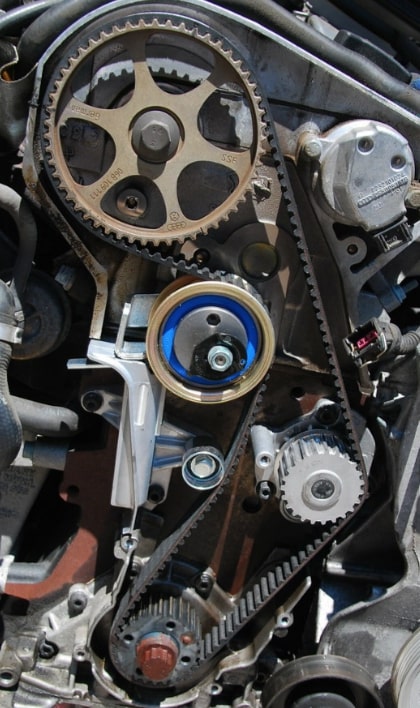
Modern vehicles use crank and cam sensors to fire the spark plugs at the perfect time. There are two ways that your Dodge Journey’s engine can be out of time. A crank or cam sensor is having an issue, or the timing chain has jumped a tooth.
You should hear slapping under the timing cover if the timing chain has jumped a tooth. If a crank or cam sensor is not reading the timing position correctly, it can cause your Journey to jerk.
4. Lack of Fuel
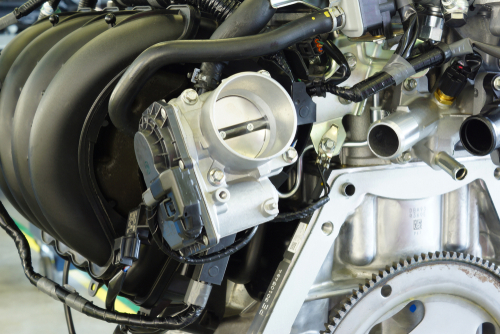
Your Journey needs fuel to run. If one of your fuel injectors is clogged or not firing correctly, it can cause a jerking sensation.
Outside of bad fuel injectors, a bad fuel pump or fuel filter can also cause a jerk while accelerating. When either of these goes bad, there is insufficient fuel pressure at the fuel rails. The best way to determine if there’s a lack of fuel is to test the fuel pressure at the rails.
5. Air System
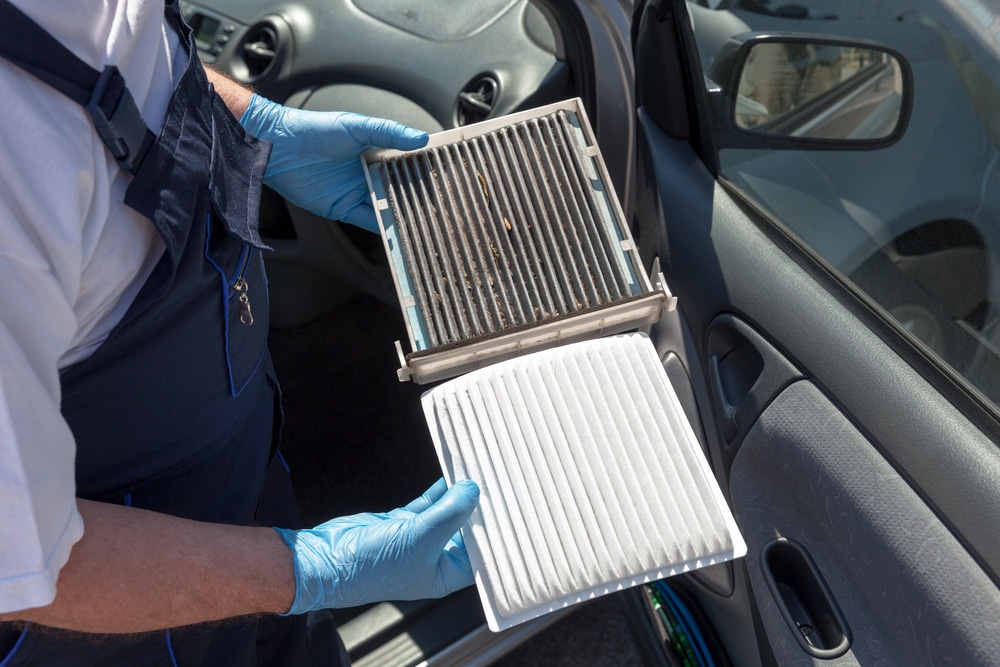
You should check if the air intake is blocked with something foreign. Or if you have a filthy air filter. Not enough air will also throw off the air-fuel ratio and make the Journey jerk.
Checking your air filter only takes a second.
6. Bad Motor Mount or Transmission Mount
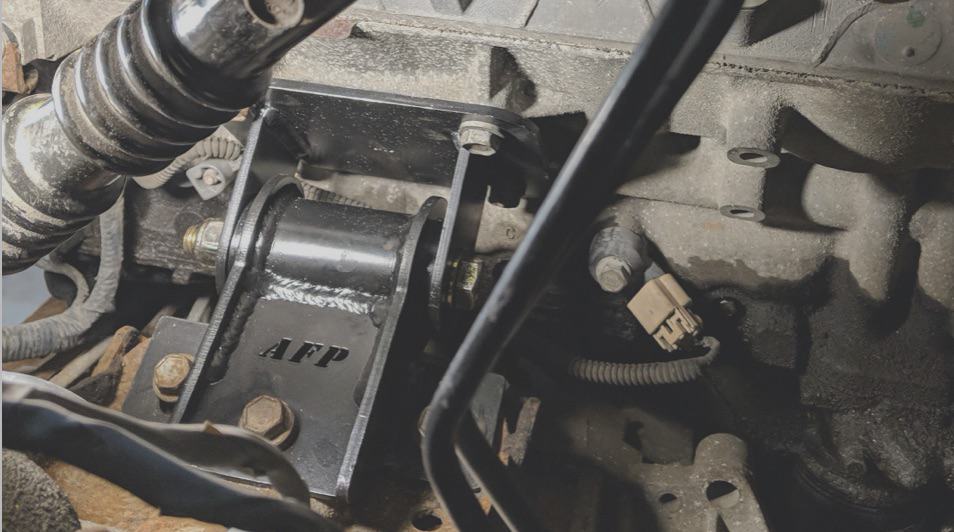
The motor and transmission mounts connect your Journey’s engine and transmission to the chassis. If one breaks, it can lead to jerking when braking, accelerating or putting the vehicle in gear.
Conclusion
Good luck figuring out what is causing your Dodge Journey to jerk while accelerating. Everything described above should cause the check engine light to come on, with the exception of a bad motor/transmission mount. So, make sure you get the trouble codes and take it from there.

